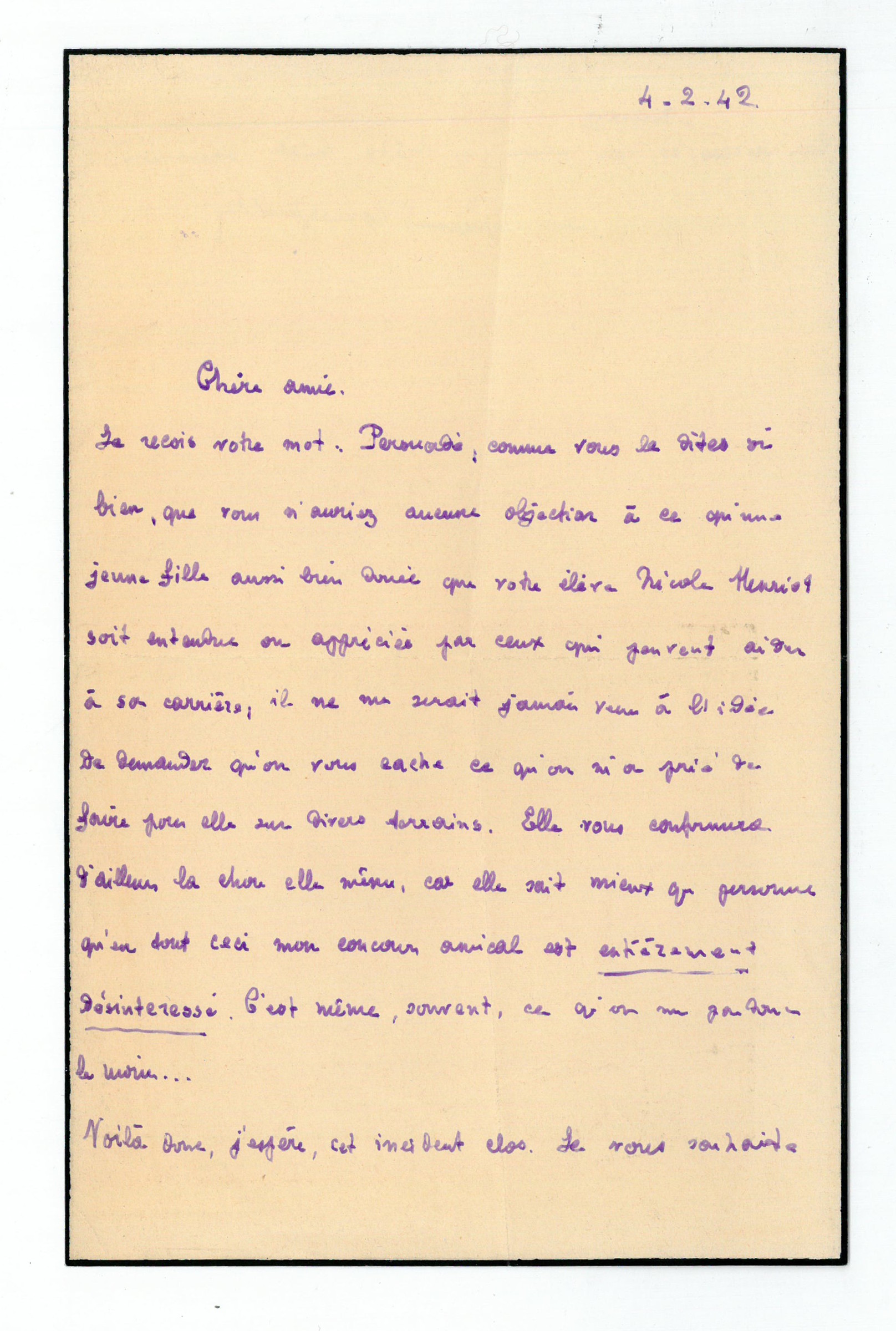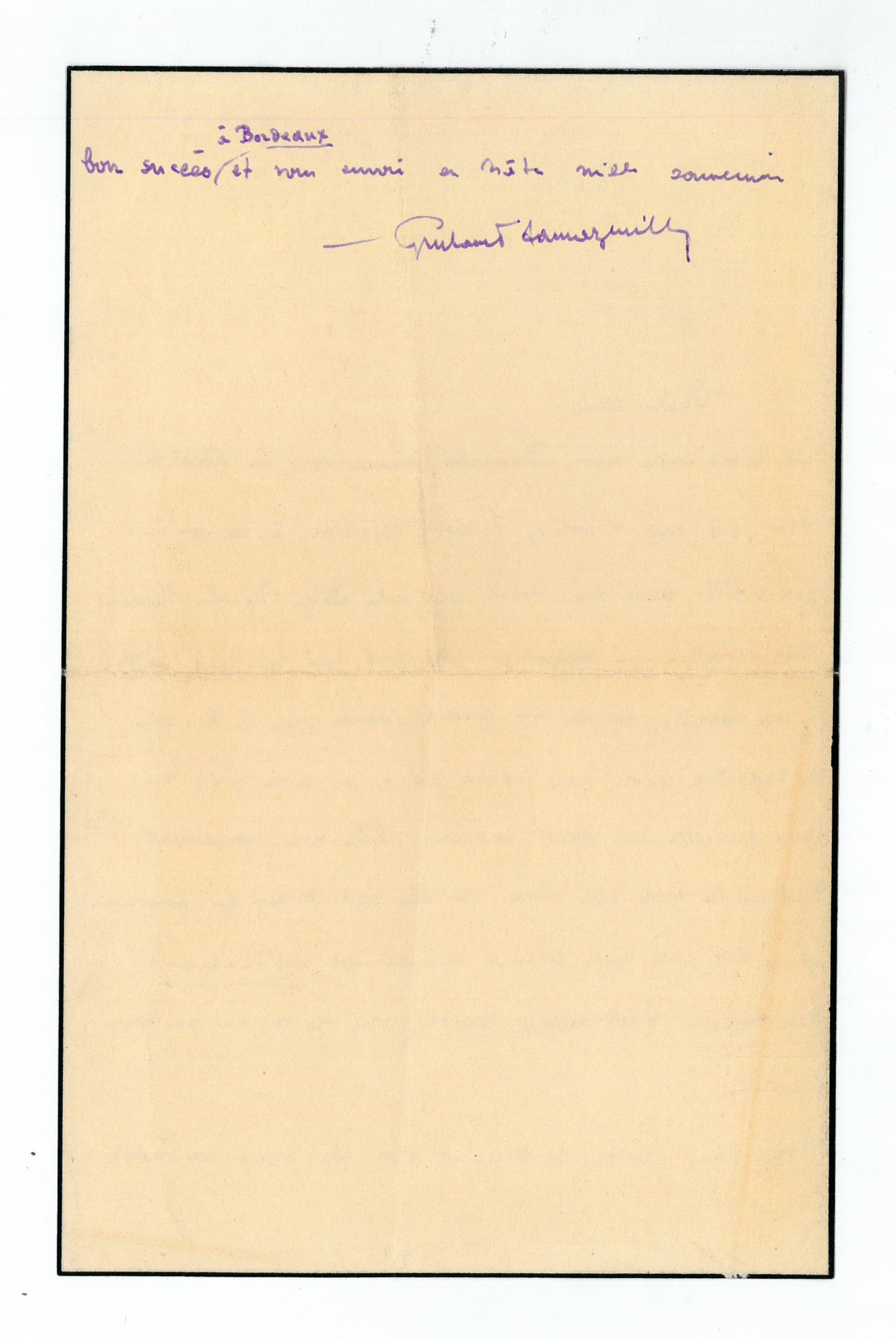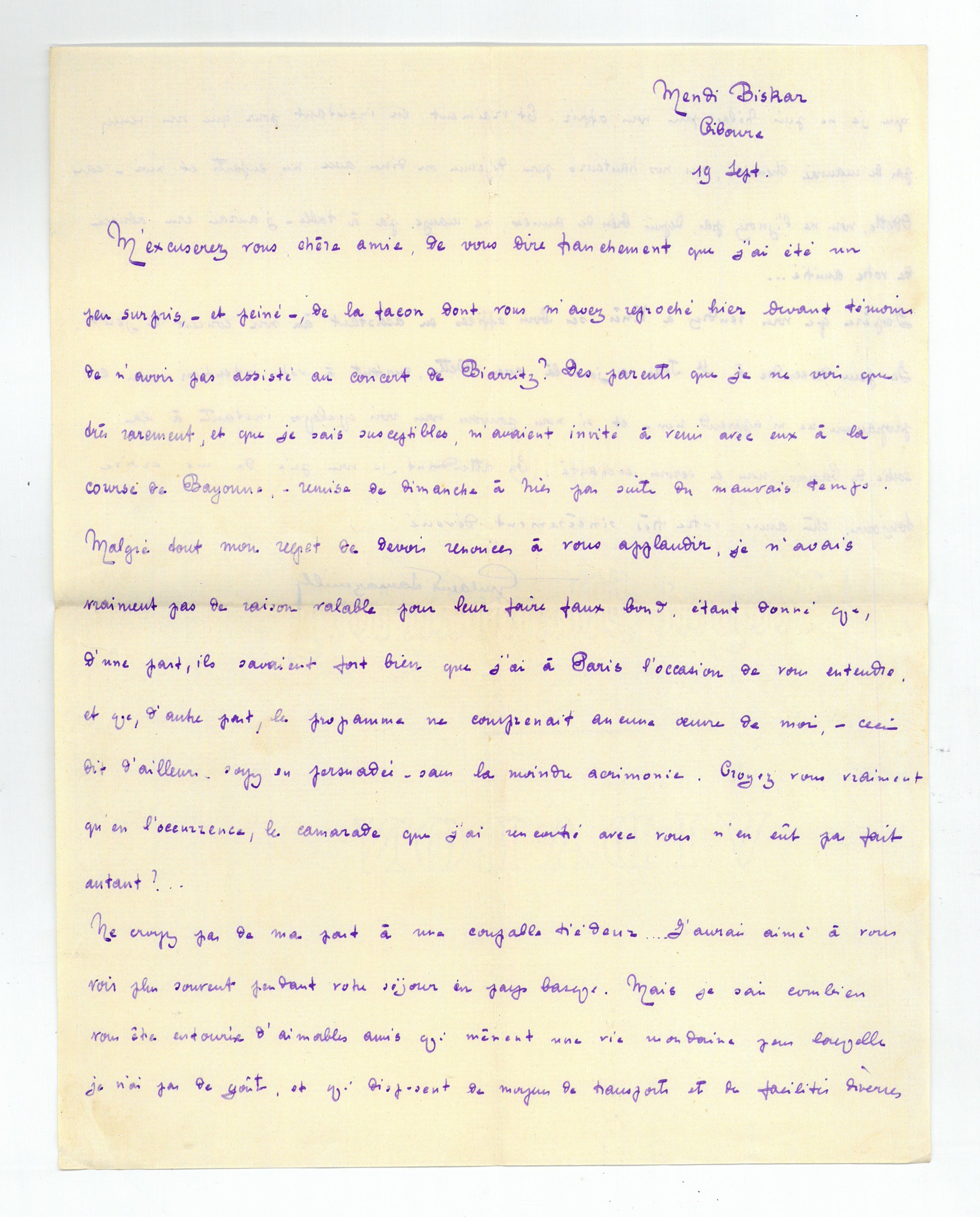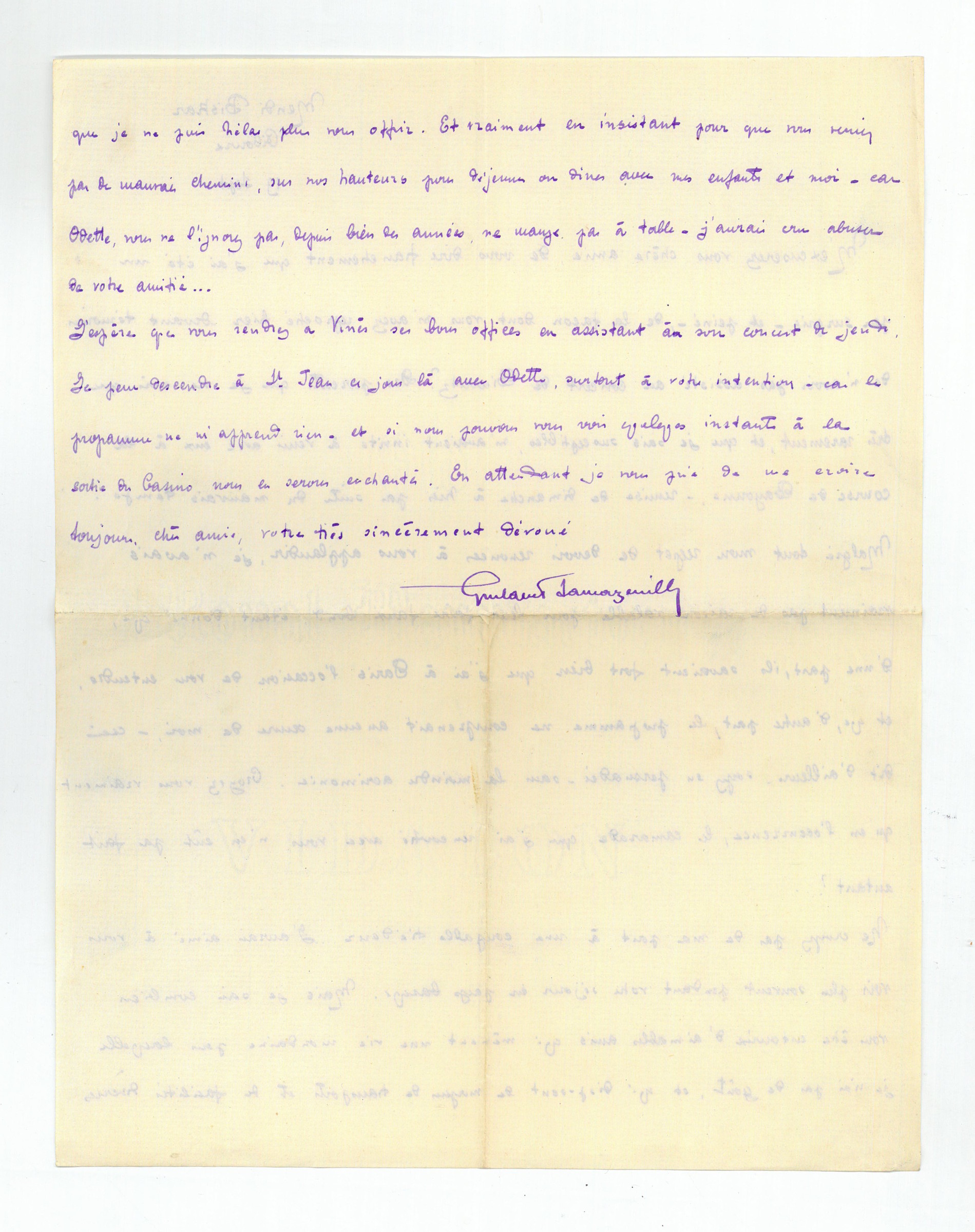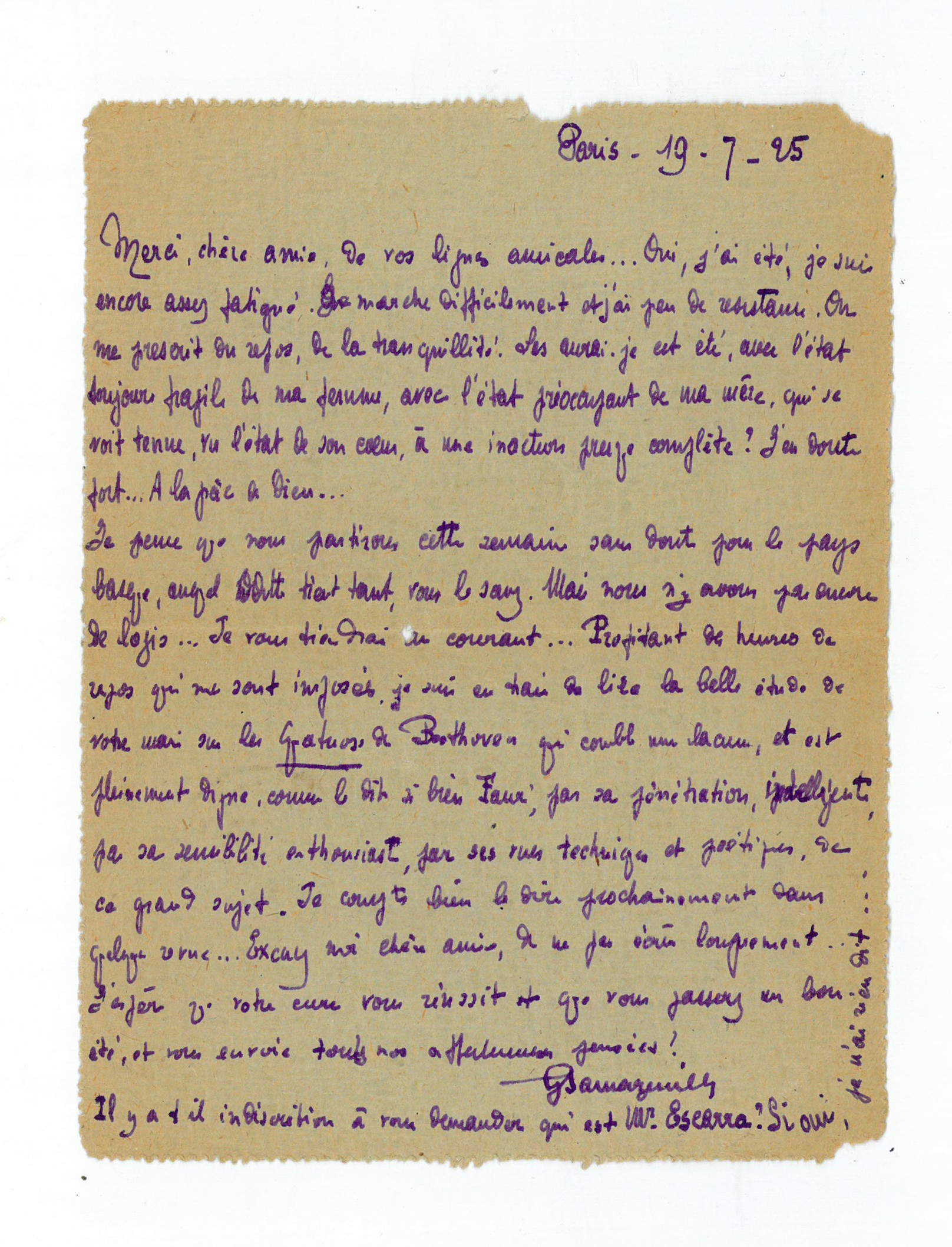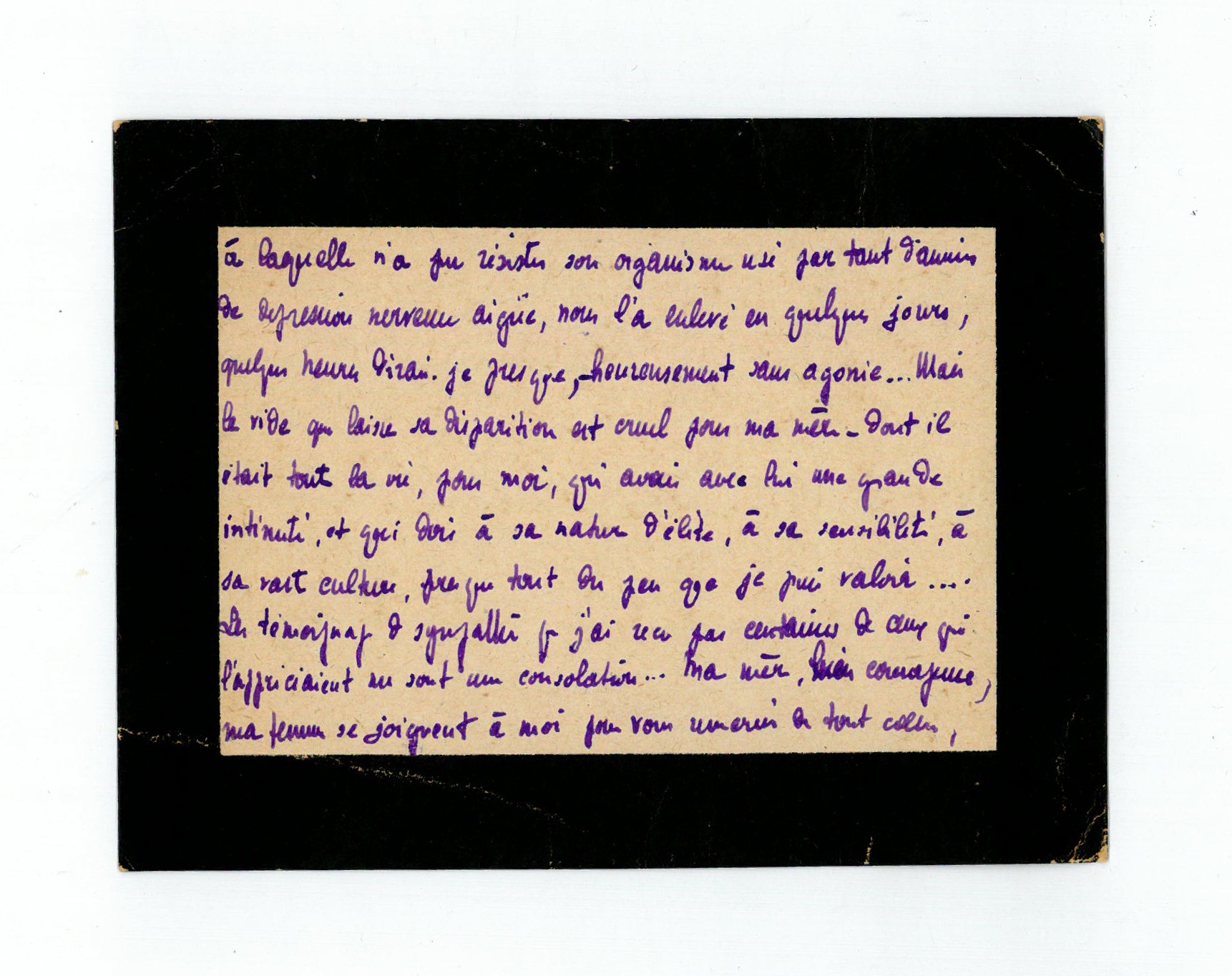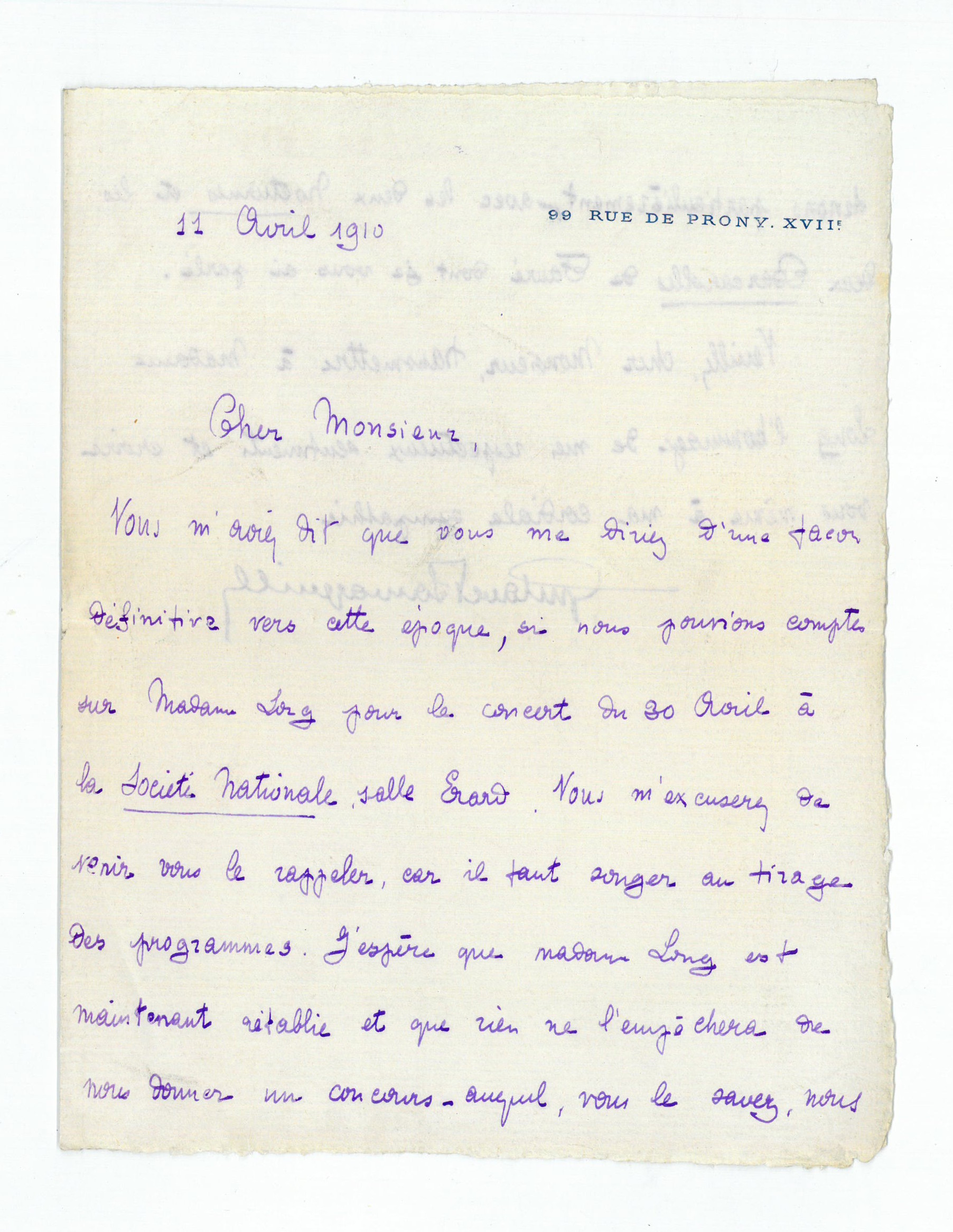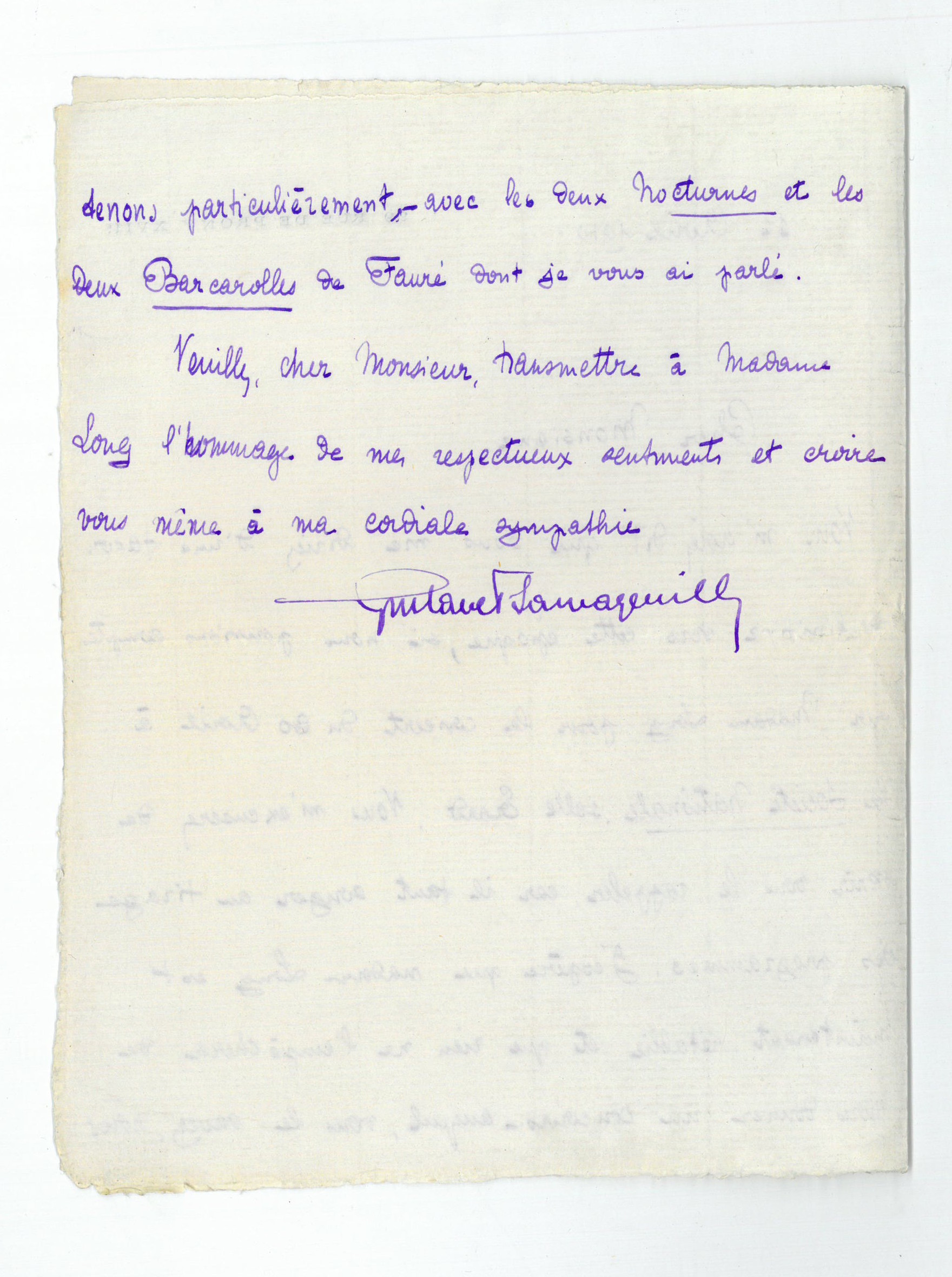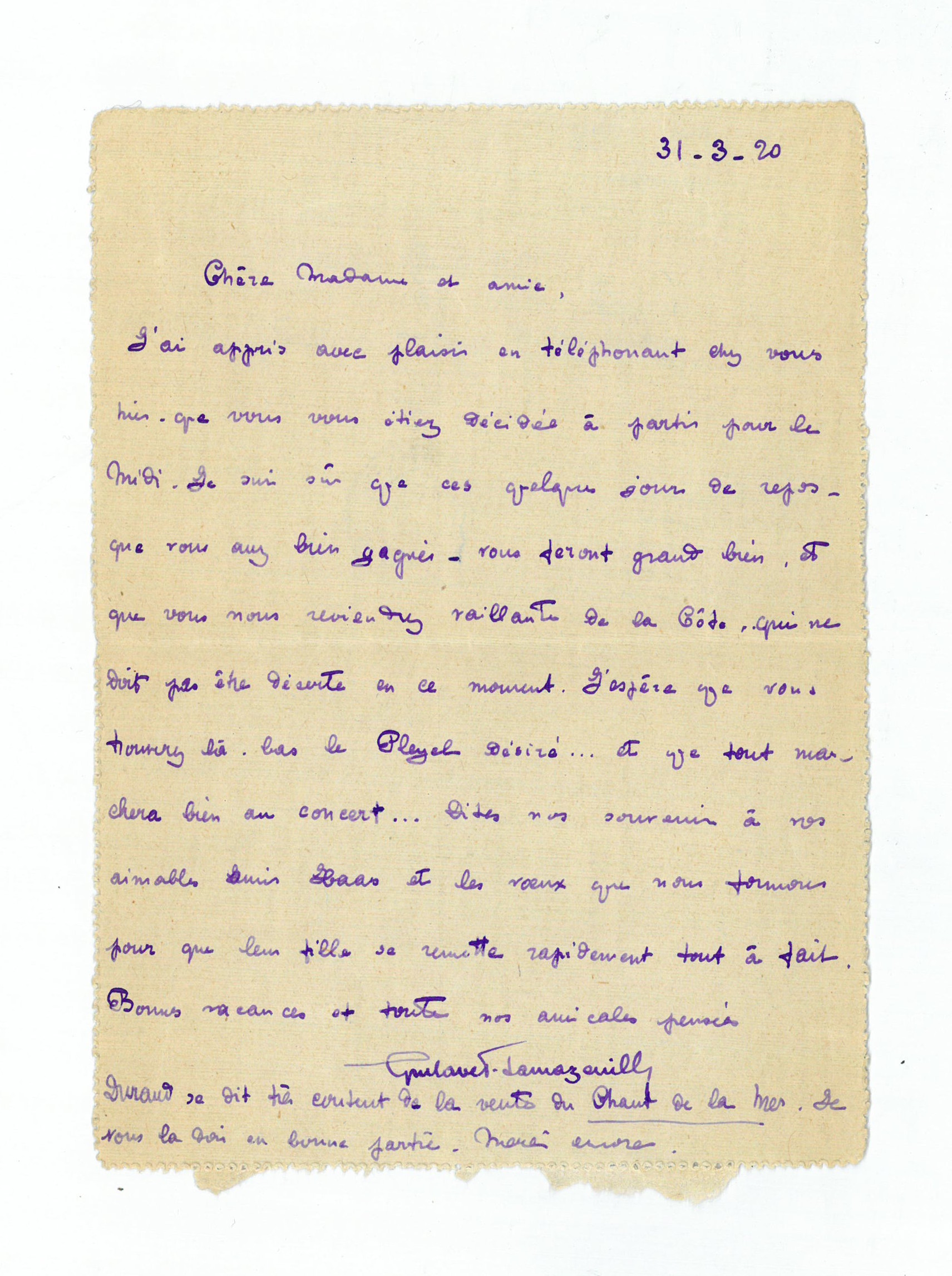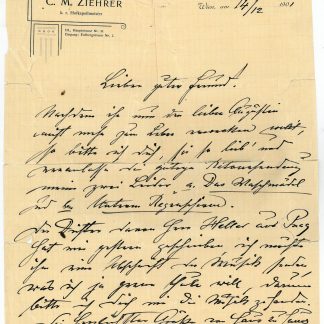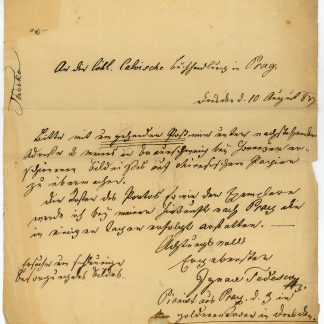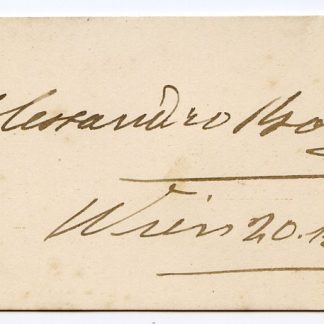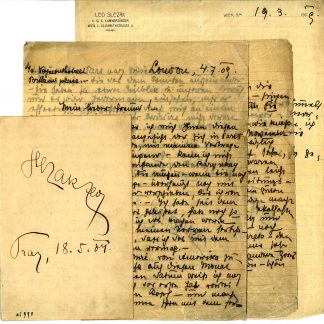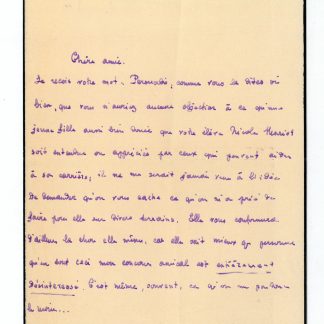6 autograph letters signed.
8vo and postcard format. Together 6½ pp.
€ 950,00
Beautiful, mostly private correspondence with the important pianist and pedagogue Marguerite Long (1874-1966) and her husband, the musicologist Joseph de Marliave (1873-1914). Samazeuilh had a purely professional relationship with Long via de Marliave, of which the first letter bears testimony, before they developed a deep if at times conflict-laden friendship. In the interesting letter to de Marliave from 11 April 1910 he seeks confirmation of Long's participation in a concert with the Société nationale de musique at Salle Érard ahead of printing the programmes. The solo pieces for piano in the concert would have been two Nocturnes and two Barcarolles by Gabriel Fauré.
On 31 March 1920, Samazeuilh wishes Long good luck for a concert in southern France, expressing his hope that she will find "the desired Pleyel down there". In a short postscript, he mentions that his publisher Durand was very satisfied with the sales of his "Chant de la Mer".
A letter on mourning paper from 5 October 1921 was to thank Long for her condolences following the death of Samazeuilh's father Fernand Samazeuilh.
A sombre tone also informs a letter from 19 July 1925 as Samazeuilh reports his fatigue and little hope for repose, given the illness of his wife Odette and the fragile state of his mother. Nevertheless, he announces to go on holidays in the Basque Country and mentions that he is reading Joseph de Marliave's most recent publication on Beethoven's string quartets with great pleasure.
In a letter dated only 19 September from Ciboure in the Basque Country, Samazeuilh discusses his consternation at Long having reproached him "before a witness" for not having attended a concert of hers in Biarritz. He explains that relatives had invited him to Bayonne, also mentioning that the programme did not contain any of his compositions: "Le programme ne comprenait aucune œuvre de moi, - ceci dit d'ailleurs, soyez-en persuadée, sans la moindre acrimonie. Croyez-vous vraiment qu'en l'occurrence, le camarade que j'ai rencontré avec vous n'en eût pas fait autant ?" The second part of the letter suggests underlying issues, as Samazeuilh explains that his lifestyle, also given his wife's illness, is not compatible with the "vie mondaine" of some of Long's friends, thus explaining why he did not meet her more often during her stay in the Basque Country: "Ne croyez pas de ma part à une coupable tédeur... J'aurais aimé à vous voir plus souvent pendant votre séjour en pays basque. Mais je sais combien vous êtes entourée d'aimables amis qui mènent une vie mondaine pour laquelle je n'ai pas de goût, et qui disposent de moyens de transport et de facilités diverses que je ne suis hélas plus vous offrir [...]".
The final letter from 4 April 1942 concerns a small conflict or misunterstanding resulting from Samazeuilh's support of a young pianist, although the larger context remains unclear.
Minor tears and browning.

